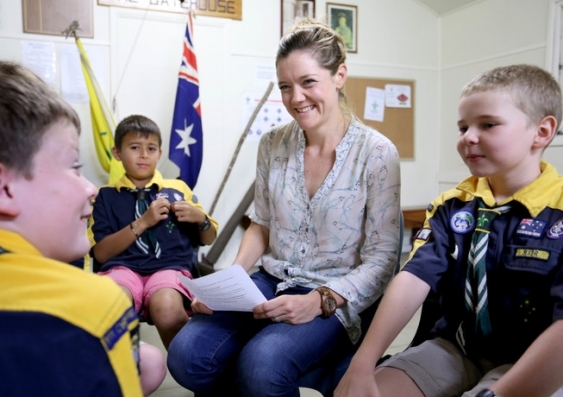Five tips on how to talk to kids about dementia
How do we talk to kids about dementia and what do they want to know? Jess Baker has some answers.
How do we talk to kids about dementia and what do they want to know? Jess Baker has some answers.

OPINION: With 900,000 Australians expected to be living with dementia by 2050, these are the types of questions more and more children will be asking as they come to know someone living with dementia. But are parents, caregivers and educators prepared for these questions?
Alzheimer’s Australia’s first national survey of dementia awareness last year would suggest that the answer is no, with people with dementia reporting low community awareness and understanding of the condition.
So how do we talk to kids about dementia and what do they want to know? I recently ran focus groups and interviewed over 40 children, people with dementia and the loved ones – including children – of people with dementia. This is what they told me.
Children want adults to be completely open and honest about dementia. In the words of a 10-year-old boy:
I wouldn’t say everything will be okay because I hate – I absolutely hate it – you’d rather someone say to you, yeah, your grandma’s never going to get better.
We need to tell children that there is presently no cure for dementia and that the health of the person with dementia will get worse. This may be upsetting, but is important to ensure your child’s trust. If you are unsure about how much to say, let your child ask the questions. This will help you gauge your child’s current level of understanding.
Remind your child that Grandpa is still Grandpa, that Mum is still Mum. A 12-year-old girl said:
It’s important to know that there is actually a person underneath […] they’re not just some random now they’ve got a disease […] they’re still special.
Children with a loved one with dementia were also emphatic that knowing it’s not the fault of the person with dementia, and that they cannot help or control what they do, was the one key thing that helped them understand the change in their loved one.
Parents spoke about the unpredictability of dementia and how it was confusing for their child. Children told me that inconsistencies in the behaviour of a person with dementia made them wonder whether the person was making the behaviour up.
Dementia is different for everyone. We need to emphasise this and talk about all the behaviour changes that people with dementia can experience. Children described the changes they saw in a loved one, such as in personality or mood, rather than memory loss, as being the hardest to understand. Fear often comes from the unknown; so by keeping your child informed, it may reduce any fear that your child may feel around your loved one.
Fear or awkwardness around people with dementia can also be because of not “knowing what to do”. Children can listen to music, look at old photos, show videos on their iPad, play games, or do craft with their loved one with dementia.
This also means the time spent with their loved one is likely to be fun and happy. Parents should emphasise that showing love and kindness is key and, most importantly, that you do not need a good memory to have a good time.
The children described some beautiful positives:
they’re cool in a way because they are quirky […] I liked that they were different.
We need to seek and share positives with children. Emphasise the good times; for example, take photos of your child and your loved one together during happy occasions.
These findings are informing the development of a government-funded education program for Australian schoolchildren about dementia.
Some children and grandchildren of people living with dementia have already started the conversation about dementia. They have spoken candidly about what it is like having a loved one with dementia, in a bid to help other children better deal with the condition. You can watch their videos here.
Jess Baker is a Lecturer in Psychiatry at UNSW.
This opinion piece was first published in The Conversation.
Read more about Jess Baker's work with kids and dementia in the UNSW magazine.